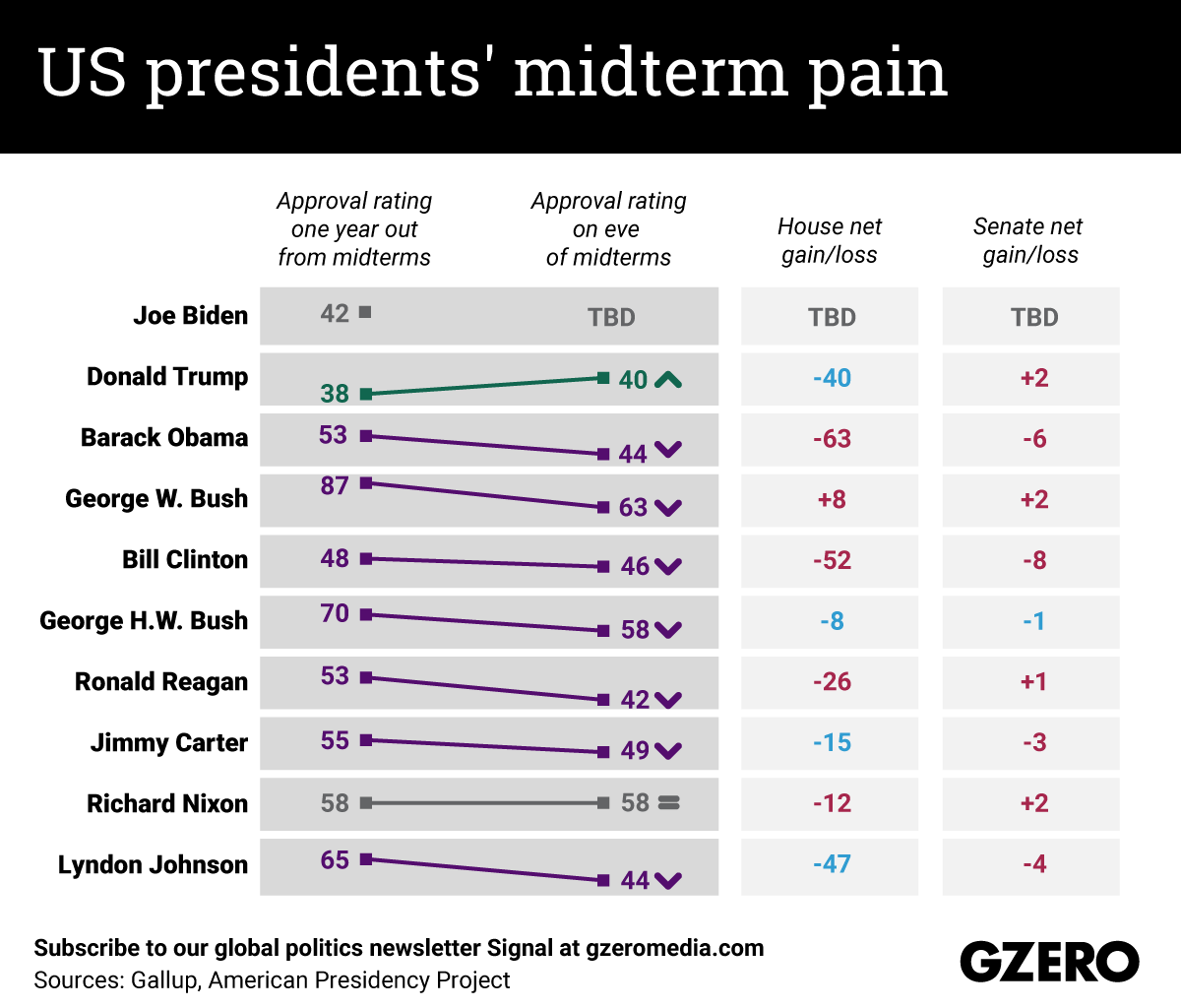November 04, 2021
Things aren't looking good for Joe Biden. And it could get worse for him a year from now, when the Democratic Party could lose control of the US Congress in the 2022 midterm election. But this dynamic isn't unique to the Biden administration. Historically, in the president's first term his party has almost always lost seats in the House of Representatives and the Senate in the midterms. What's more, the president's own approval rating also tends to take a hit as the vote nears. We compare the approval ratings of the last 10 US presidents one year before the midterm election and on the eve of the vote, as well as the number of House/Senate seats lost/won by the party in the White House at the time.
Want to get more of these graphics in your inbox? Sign up for our daily newsletter Signal here.
From Your Site Articles
- The Graphic Truth: Is Biden's honeymoon period over? - GZERO ... ›
- Deadlocked Dems and Republicans on a roll - GZERO Media ›
- How Biden’s handling of Russia-Ukraine war is viewed in US - GZERO Media ›
- Can the US get its act together? Susan Glasser & Peter Baker on "the world’s greatest geopolitical crisis" - GZERO Media ›
More For You
- YouTube
For many in Iran, it’s a waiting game for how long Ayatollah Khamenei has left to live.
Most Popular
An army soldier stands guard at a post at the Friendship Gate, following exchanges of fire between Pakistan and Afghanistan forces, at the border crossing between the two countries in Chaman, Pakistan February 27, 2026. Picture taken with a mobile phone.
REUTERS/Abdul Khaliq Achakzai
In a 30-minute call on Thursday, President Donald Trump reportedly told Ukrainian President Volodymyr Zelensky he wants to end the war with Russia as soon as possible — aiming for a deal by summer, but ideally within weeks.
Former British ambassador to the U.S. Peter Mandelson leaves his residence after he was released following his arrest by London police on Monday on suspicion of misconduct in public office, following the release of U.S. Justice Department files linked to the late financier and convicted sex offender Jeffrey Epstein, in London, Britain, February 26, 2026.
REUTERS/Toby Melville
The ghost of Jeffrey Epstein continues to haunt the world.
Think you know what's going on around the world? Here's your chance to prove it.
© 2025 GZERO Media. All Rights Reserved | A Eurasia Group media company.
